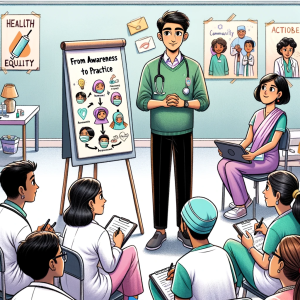
Effective Altruism: The Intersection of Ethics and Impact in Public Health
At the heart of the effective altruism movement lies a transformative philosophy: it’s not enough to intend to do good; the true measure of philanthropy is the actual good achieved per resource expended. This principle of maximizing impact, championed by thought leaders like Peter Singer (whom I first encountered in a 100-level Intro to Philosophy Course) and William MacAskill, has transcended academic discourse to inspire action among the world’s most influential tech visionaries.
Philanthropists like Bill Gates and quasi-philantrophist like Elon Musk are not just contributing to the movement; they embody it by dedicating substantial portions of their fortunes to tackling global challenges. They leverage their tech-driven mindset, which prizes analytical rigor and foresight, to create solutions that are effective today and sustainable for future generations.
A shared commitment to long-termism underscores the synergy between effective altruism and technology’s vanguard. It’s a forward-looking perspective, where the decisions made now are imbued with the responsibility of safeguarding humanity’s future potential. In this ethos, the tech leaders are not mere donors but stewards of a future that aligns technological advancement with the broader good of society.
The union of effective altruism and long-termism heralds a bold reimagining of philanthropy, advocating for a strategic approach that extends its gaze beyond the pressing demands of the present to the vast expanse of the future. This paradigm not only evaluates the effectiveness of our actions but also contemplates their lasting impact. However, as we embark on this ambitious journey, it is essential to confront the ethical conundrums it presents. The pursuit of a ‘thriving future’ through the lens of effective altruism often privileges quantifiable outcomes, potentially at the expense of the nuanced moral landscape that shapes human experience. By placing immense value on the future, we risk undervaluing the urgent moral obligations of the here and now, raising critical questions about the ethical trade-offs of a movement that seeks to optimize philanthropy with the precision of a science.
Public Health and Effective Altruism: A Closer Look
Maximizing Impact Through Evidence-Based Interventions
The promise of effective altruism in public health is rooted in its commitment to evidence-based interventions. By focusing on strategies with the highest proven impact, such as widespread vaccination programs and accessible preventative care, the movement has the potential to revolutionize global health outcomes.
For instance, consider the eradication of smallpox or the dramatic reductions in polio cases worldwide. These victories were medical triumphs and exemplars of effective altruistic principles in action: targeted, data-driven, and high-impact.
Effective altruism encourages public health initiatives to rigorously evaluate their interventions through the lens of cost-effectiveness. By doing so, resources can be channeled into programs that yield the greatest health benefits per dollar spent. In this view, saving lives is a matter of good intentions, strategic planning, and prioritization.
Sustainability and Scalability in Public Health Programs
An essential aspect of the effective altruist approach is the emphasis on scalability and sustainability. The movement advocates for programs that can be scaled up to serve larger populations without compromising effectiveness. For example, bed net distribution for malaria prevention is a highly effective intervention that can be scaled to protect entire communities.
Moreover, sustainability is key. It’s not enough to provide short-term relief; effective altruism in public health seeks to create systems that maintain and improve health outcomes over time. This means building infrastructure, enhancing local healthcare capacities, and developing policies that support ongoing public health improvements.
Sounds good, right?
Ethical Drawbacks and Counter-Arguments
The Risk of Overemphasizing Quantifiable Outcomes
However, effective altruism’s focus on quantifiable impact can lead to significant ethical concerns. Critics point out that an over-reliance on measurable outcomes might overlook the importance of qualitative aspects of well-being. For instance, how do we measure the impact of mental health initiatives, the comfort of palliative care, or the value of an individual’s satisfaction with their healthcare? These qualitative factors play a crucial role in overall well-being. Still, they are often harder to quantify and, as a result, risk being undervalued or ignored in an effective altruism framework.
The Complexity of Human Dignity and Autonomy
Another critique centers on the movement’s potential to oversimplify moral decision-making into a “moral calculus” form that could undermine human dignity and autonomy. With its utilitarian roots, effective altruism sometimes leans toward the greatest good for the greatest number, potentially at the expense of minority rights or individual needs. Public health, however, must navigate complex ethical landscapes where individual autonomy and community needs intersect and sometimes conflict.
The Paradox of Indefinite Deferral
The quest for optimal impact through effective altruism is inherently future-oriented, often prioritizing long-term benefits over immediate relief. This perspective, while well-intentioned, can inadvertently lead to a form of paralysis by analysis, where the search for the perfect solution results in a failure to act promptly. Critics of this approach argue that the perpetual postponement, justified by the anticipation of more effective future solutions, ignores the pressing needs of those suffering now.
Moreover, the inherent uncertainty about future scenarios compounds this issue. There’s an ethical consideration that needs addressing: the needs of present individuals are concrete and observable, whereas the potential beneficiaries of future actions are theoretical and indefinite. This raises a profound moral question: at what point do we prioritize current, tangible suffering over hypothetical future individuals? The challenge lies in determining when to pivot from future-focused planning to present-day action, recognizing that the future will always present new challenges and populations in need, thus risking an eternal deferral of aid to those in immediate crisis.

Should Public Health Professionals Adopt Effective Altruism?
The Case for a Balanced Approach
As a proponent for public health, I believe that while the principles of effective altruism can inform public health policies, they should not dominate them. The field of public health is inherently multifaceted, involving not just scientific and economic considerations but also social, ethical, and cultural dimensions. Decisions in public health must, therefore, balance the efficient allocation of resources with a comprehensive understanding of health as a holistic concept that encompasses more than just physical well-being.
Beyond Data: Embracing Complexity and Nuance
Public health professionals must navigate the complexities of individual and community health needs, which requires a nuanced approach. While data is invaluable, it must be interpreted within the context of the lived experiences of the individuals and communities affected. Furthermore, public health professionals must guard against the potential reductionism of effective altruism and advocate for interventions that respect human dignity, cater to the nuanced needs of diverse populations, and recognize the intrinsic value of compassionate, human-centric care.
Effective altruism provides a useful framework for considering how to do the most good with our limited resources. However, in the complex, real-world scenarios faced by public health professionals, it is but one of many tools in our ethical toolbox. It should inform, but not dictate, public health policy and practice.
Conclusion
Effective altruism challenges us to think critically about how we can do the most good. However, in public health, the stakes are human lives, and the metrics are not solely numbers but stories and experiences. As public health professionals, we must consider the broader implications of our actions and recognize that sometimes, the most effective choice is to prioritize the immediate and personal over the distant and statistical.
Stay Current With Public Health
Join the heartbeat of community change—subscribe to ‘This Week in Public Health.’ Our weekly newsletter gives you a front-row seat to the latest health initiatives, research revelations, and advocacy efforts shaping our neighborhood’s health landscape. It’s your chance to stay connected, informed, and ready to act on issues that matter deeply to you. Become a subscriber today and take the first step towards a more informed, healthier community life.



